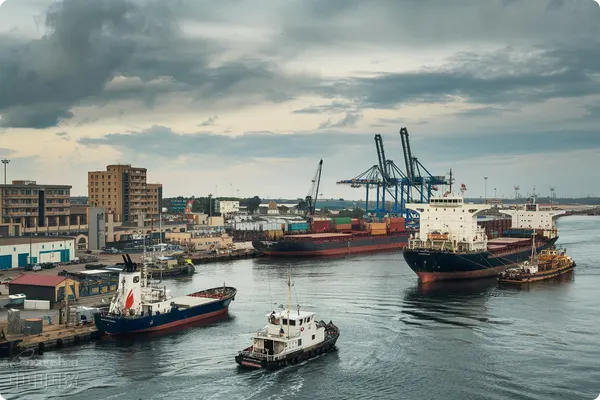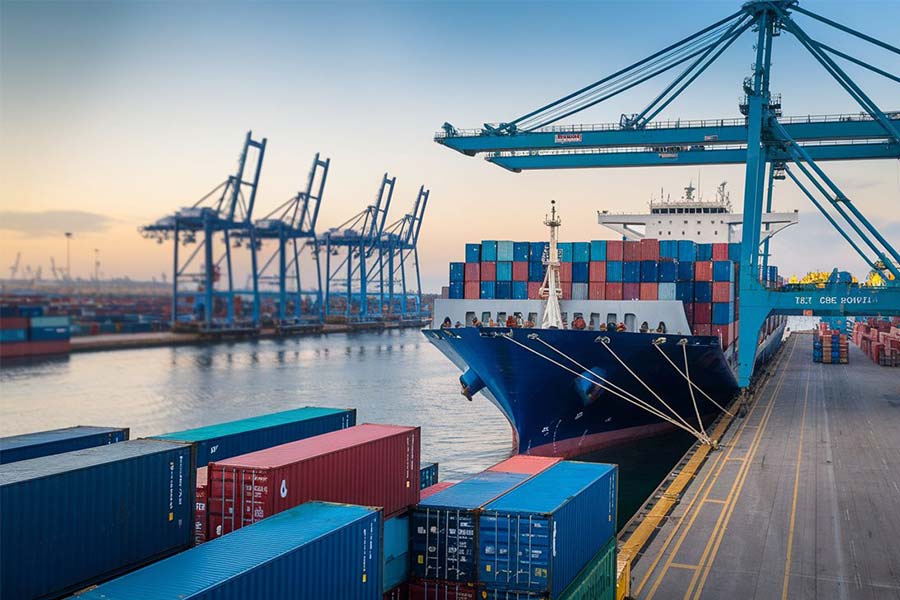- Shanghai Zhongshen International Trade Co., Ltd. - Two decades of trade agency expertise.
- Service Hotline: 139 1787 2118

Contents
ToggleI. Case Background: Urgent Order Meets the Test of Customs Clearance Efficiency
On September 2, 2023, we received an urgent commission from a long-term cooperative client—a batch of gasket sheets (HS Code: 4016931000) shipped from Busan Port, South Korea, was about to arrive at Shanghai Port. These industrial consumables, valued at approximately $120,000, are critical spare parts for the client's production line, and any delay would result in a complete shutdown of the entire production line. With 15 years of...Import RepresentationExperience: Our team completed the entire process from customs declaration to delivery within 24 hours, achieving the astonishing "Shanghai Speed" that amazed our clients.
II. Deciphering the "Access Code" for Efficient Clearance
Behind the seemingly simple one-day clearance lies the professional agents' precise control over every step:
1. Document Pre-screening: The "Head Start Advantage" in Customs Clearance
We requested the client to provide the complete documentation package 3 days in advance:
- Sino-Korean Bilingual Trade Contract (Key Review of Price Terms and Delivery Period)
- Proforma Invoice (Verify HS Classification Accuracy)
- Detailed Packing List (confirming gross/net weight and packaging specifications)
- Maritime TransportationBill of Lading (Electronic Pre-confirmation)
Special Reminder: Gasket products are often questioned by customs regarding their classification due to material issues. We have proactively prepared raw material certificates and processing procedure descriptions from the Korean factory, which are crucial to avoiding delays in subsequent inspections.
2. Port Connection: A "Port Ballet" Where Every Second Counts
The cargo berthed at Waigaoqiao Dock at 08:30 on September 2nd, and our on-site operator had already completed:
- Manifest information comparison (ensure the bill of lading number and container number are completely matched).
- Dock system pre-registration (saves 2 hours of queuing time)
- Customs Supervision Zone Appointment (Avoid the Morning Inspection Peak Hours)
3. Intelligent Customs Declaration: Application of Digital Tools
Declaration through the "Single Window" system:
- 09:15 Complete customs declaration (use pre-recorded templates to ensure data consistency)
- 10:30 The system finalized the tax assessment (5% tariff, 13% VAT).
- 11:00 The client electronically pays the tax (we provide real-time payment progress tracking).
III. Those Easily Overlooked "Customs Clearance Pitfalls"
Through hundreds of imported sealing component cases, we have identified three common issues:
1. Material declaration pitfalls
On one occasion, a customer simply declared "rubber sealing gaskets" as "rubber products," when in fact they were made of a composite material containing carbon fiber, leading to subsequent tax adjustments. Now, we require that detailed MSDS (Material Safety Data Sheets) must be provided.
2. Blind spots in brand declaration
Even unbranded industrial parts must be clearly labeled as "NO BRAND," otherwise they may be subject to requests from customs for additional brand clarification.
3. Key Points of Packaging Compliance
The wooden packaging must bear the IPPC fumigation mark. We once encountered a case where a batch of goods was delayed for three days due to the Korean supplier's failure to attach the mark.
IV. The Four Hidden Values of Professional Representation
Compared to self-operated imports by enterprises, professional agencies can bring these unexpected benefits:
1. Tax rate optimization
Through the RCEP Rules of Origin, we assisted the client in obtaining a preferential tariff rate of 1.8%, saving approximately $1,500 in taxes per shipment.
2. Inspection and Response
Establish a "Common Inspection Issues Response Database." When customs questioned the product classification this time, we provided technical explanations and records of similar products' customs clearance within 10 minutes.
Logistics coordination
Establish a VIP channel with the port and complete within 2 hours after clearance:
- Document exchange (to avoid container demurrage charges)
- Truck Dispatch (Using Pre-registered Vehicles for Rapid Exit)
- Special Time Slot Pass Application (Allowing Nighttime Pickup)
4. Follow-up Services
After clearance, we proactively provide:
- Import payment documents package (including customs payment vouchers, customs declaration forms, etc.)
- Product Traceability Archive (For Enterprise Quality Traceability)
- Annual Import Analysis Report (Optimizing Subsequent Procurement Plans)
V. Three Suggestions for Importing Enterprises
Based on this case, here are some suggestions for enterprises with similar needs:
1. Establish an import timeline.
It is recommended that enterprises reserve a "3-2-1" buffer period:
- Confirm complete documentation 3 days before arrival.
- Complete pre-declaration 2 days before arrival.
- 1 day is reserved for inspection upon arrival.
2. Selecting Port Partners
Different terminals in Shanghai Port have specialized focuses, and we recommend:
- Precision instruments choose Yangshan Port (with advanced inspection equipment).
- For bulk cargo, choose Waigaoqiao (large yard area).
- Select Caojing Port for hazardous chemicals (professionally supervised site).
3. Make good use of the free trade zone policies.
For enterprises with frequent imports, the following can be considered:
- Distribution and consolidation through the Waigaoqiao Free Trade Zone
- Utilize the Yangshan Special Comprehensive Bonded Zone for simple processing.
- Apply for AEO certification to enjoy customs clearance facilitation.
This case demonstrates that professional import agents are not merely "freelance traders," but rather achieve the ultimate compression of customs clearance efficiency through systematic operations. When the client's production line received the batch of gaskets as scheduled, the comment from their procurement director was truly gratifying: "You've turned customs clearance into a precise art of clockwork."
Related Recommendations
? 2025. All Rights Reserved. Shanghai ICP No. 2023007705-2  PSB Record: Shanghai No.31011502009912
PSB Record: Shanghai No.31011502009912










